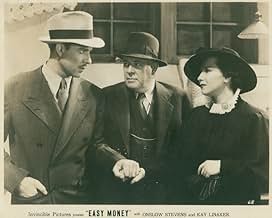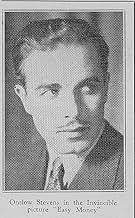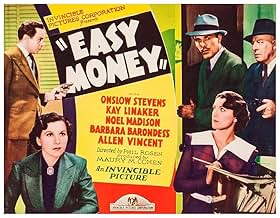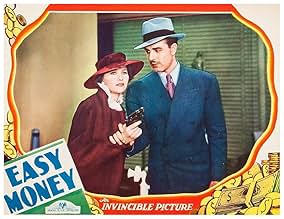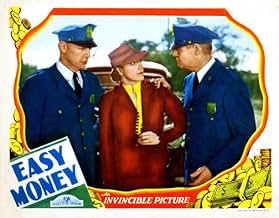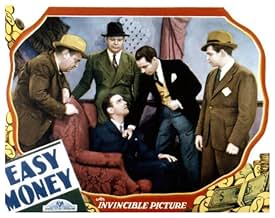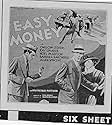Füge eine Handlung in deiner Sprache hinzuDan Adams resigns his position as prosecutor on the district attorney's staff and sets out to clean up a gang of fake-accident racketeers. He gets a job with an insurance company, and assure... Alles lesenDan Adams resigns his position as prosecutor on the district attorney's staff and sets out to clean up a gang of fake-accident racketeers. He gets a job with an insurance company, and assures the company president he will get the goods on the gang or die in the attempt. At the co... Alles lesenDan Adams resigns his position as prosecutor on the district attorney's staff and sets out to clean up a gang of fake-accident racketeers. He gets a job with an insurance company, and assures the company president he will get the goods on the gang or die in the attempt. At the company offices, he meets Carol Carter and she, believing he is a shyster (possibly redundan... Alles lesen
- Chick
- (as Alan Woods)
Empfohlene Bewertungen
Easy Money is about an organized gang who make a good living at staging accidents and collecting from lawsuits engendered therein. Debonair and swarthy antique dealer Noel Madison who populated dozens of crime dramas in the 30s heads the racket in this city. One of the people involved is the brother of Assistant District Attorney Onslow Stevens, Allen Vincent.
Stevens gets the case to prosecute and he throws it and doesn't bother to tell his boss until after the trial that Vincent using an alias is his brother. Sorry folks, then as now a resignation would not have sufficed. The Bar Association would have weighed and in all likelihood Onslow Stevens would have been disbarred. Certainly Stevens would not have been hired by an insurance company because he came up with a scheme to nail the organized gang of crooks perpetrating these phony accidents.
Easy Money is cheap, still it's decently acted and directed. But how could the creators at Invincible Pictures have made such a catastrophic plot premise blunder?
The story starts with all sorts of accidents which are being staged by a gang of con artists. When one of these crooks is caught, the prosecutor in charge throws the case...and it's obvious. His excuse...the accused was his brother so he had no choice. Huh?! This would have resulted in the prosecutor going to prison...especially since he admitted he tried NOT to get a conviction.
Some time later, the ex-prosecutor gets a job with some insurance investigators...though why any would hire the guy, is pretty confusing. And, through the rest of the film he fights to stop the racket...which, based on his earlier behavior, makes no sense nor does it make him any sort of hero.
There's much more to the story than this...but suffice to say that the premise really made no sense. A film about insurance fraud could have been interesting and exciting...but nonsensical writing make this one to skip.
Stevens goes to work for an insurance company, where he can get a larger view of the problem, and where his invaluable assistant is Carol Carter. After a few weeks, he gets the picture: flop artists, some shady doctors, and some crooked lawyers are what is needed to make the racket pay. Because everyone believes that insurance companies have lots of money, the payouts are big, and premiums go up. People get mad at the insurance companies and juries write bigger checks.
However, Stevens begins making headway, and Vicent gets married and goes straight, even though he won't rat on the gang. Not everyone believes that, though.
It's a pretty good movie directed by Phil Rosen in a busy year for the Poverty Row director, just one of nine movies he cranked out that year. The acting is good, the dialogue and visuals move at a good clip and the result is a movie that must have pleased both the audiences and the insurance companies.
Wusstest du schon
- WissenswertesThis film was first telecast Thursday 10 July 1941 on New York City's newly launched first full time television station WNBT (Channel 1) which had been previously been identified as W2XBS, during its preceding experimental years. Post-WWII television viewers got their first look at it in New York City Sunday 8 June 1947 on WCBS (Channel 2), in Cincinnati Sunday 7 March 1948 on WLW-T (Channel 4), in Los Angeles Sunday 1 May 1949 on KTLA (Channel 5), and in Salt Lake City Wednesday 17 August 1949 on KDYL (Channel 4).
Top-Auswahl
Details
- Laufzeit1 Stunde 10 Minuten
- Farbe
- Seitenverhältnis
- 1.37 : 1
Zu dieser Seite beitragen


